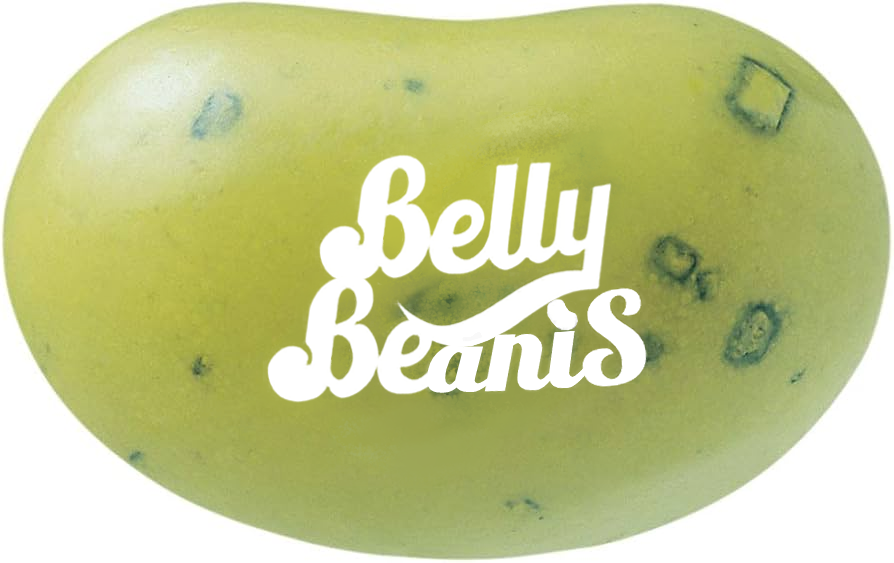hiiiiii communists who live in my pc, do any of you know how to cook?
i don’t. at all. a few days ago my roommate taught me how to scramble an egg, and i had never had broccoli or cauliflower or (most other vegetables 🙃) until he let me try some of his, so that’s approximately where i’m at with food knowledge. given that i’m clueless and live with several people in a completely open plan house, i try to avoid cooking anyway because i’m constantly being watched in the kitchen and people are making their little comments. BUT work is sending me traveling so i have a kitchen all to myself for 2 weeks and an affordable supermarket about 10 minutes walk away. i plan to use this time to try to learn a bit <3
the only problem is that i have absolutely no clue where to start. i can make rice and boil pasta and that’s about it. do any of you have recipes that are accessible for a noob and will help me grind my skill up?  or any idea of places online for my situation?
or any idea of places online for my situation?
i have no dietary restrictions and i’m open to trying pretty much anything once. i’m just confused and every recipe i click on online seems to be some artisan shit that needs 2 hours and tools and ingredients i’ve never heard of
A lot of the difficulty in learning to cook is that you simply need to know the ingredients. You need to know how to prep it, how it changes as you cook it, and develop an intuition for when you need to adjust the recipe because very rarely are you ever going to follow a recipe word for word and a lot flat out lie about cooking times and expect you to have a basic level of knowledge already. It feels like a lot, because it IS a lot.
My partner was in a similar situation when we first met. She hadn’t eaten or heard of a lot of ingredients and got stressed out when I tried to watch or help. A big help for her was to use a meal service, like Blue Apron or Factor. They come with very accurate recipes and all the ingredients are partially prepared and portioned, so no shopping and you have everything you need. I know it doesn’t help with the two week period you have, but when you’re back home and if it’s in your budget it could be something to look into that could really help.
Just remember that learning anything is a process though. You’re going to make some burnt or nasty food sometimes, but don’t let it discourage you!
Edit: I asked my partner if she would have liked to have done anything different knowing what she knows now and she still recommends using the meal service. She said that specifically a lot of recipes expected you to know what “small dicing an onion” or “mince two cloves of garlic” meant and was supposed to look like, but they included accurate pictures of what they looked like prepped and that it was very helpful to make sure you had everything right before you even started cooking while also working on your knife skills (which is equally as important for cooking and also having it not take an obnoxiously long time).
She also mentioned that since you have roommates, you might be able to gift a week or two of free referral meals to each other to essentially get a month or two of free meals between all of you. It’s been a few years though and I’m not sure exactly if that’s changed over the years.
youtube videos are pretty good here, both for specific recipes and more general skill set stuff.
As a general tip I’d just recommend you to use all your senses in the kitchen, especially hearing and smell of course. We are so used to doing so much with our eyes, and of course the look of a dish is important, but to get the taste right you need to use your sense of smell while cooking. As for hearing, the difference between a light sizzling and a crackling hot pan will eventually be second nature, but you’ll have to consciously listen for it in the beginning. Pan getting silent all of a sudden, even though there’s lots of heat? Maybe add some oil, or a liquid before it smells burned.
Contrary to most, I’d stay mostly away from cooking one recipe after the other and instead experiment a bit more, try out general food prep basics (how does ingredient x taste when I salt it before frying vs after, or what difference does temperature make when I roast ingredient y, what’s the difference in steaming something vs frying it), try out as many spices and their combinations as you can afford, and just generally go full mad scientist (or eccentric artiste) with it. You can also try and reverse engineer some beloved dish you really like but never really get anywhere, that’s also fun. Recipes will always be there, but in my experience developing a critical eye towards them and figuring out some ‘universal kitchen truths’ or just generally applicable ways of preparation can get you so much further and you’ll be improvising recipes from random ingredients in no time.
And here’s a little content dump of my favorite Ethan Chlebowski videos. I learned a lot from the dude and I really think it’s some of the best cooking content out there, but I gotta blanket CW for meat etc, it’s not a vegan channel. Still, it’s all perfectly transferable to cooking vegan or vegetarian or however you want.
Spices 101
Spices 102
All about garlic
All about salt
Stir Fry framework - for learning a whole family of straightforward, beginner-friendly dishes that are endlessly adaptable for whatever ingredients you likeI found YouTube links in your comment. Here are links to the same videos on alternative frontends that protect your privacy:
Link 1:
Link 2:
Link 3:
Link 4:
Link 5:
another important Maillard Reaction Fact
I mentioned moisture in another comment. This is a reason to not “over crowd” the pan with whatever you are cooking. If you throw a bunch of big chunks of vegetables or meat or anything with moisture content into a pan, they create localized micro climates where the steam gets trapped for a bit, which delays the moisture cooking out and the beginning of maillard reactions (browning). The same is true if you are roasting stuff. When you roast stuff, after it’s oiled and seasoned and on the sheet pan or roasting pan, put your fingers into it and physically spread the food out, try to make gaps of like an inch or so between as many pieces as possible.
I’m for real dawg, the #1 thing any aspiring cook needs to do is learn the chemistry and physics promoting maillard reactions
source: i’m a chef and the basic chemistry/physics knowledge I learned before dropping out of school and how it ties into this shit is why I’m the best cook at my job
This and also “stop poking it” is the best advice too. I think it is a Gordon Ramsay tip on making minced meat, but applies to everything.
If trying to brown something, walk away from the pan. If adhd brain like mine, just walk away instead of constantly poking the food. Gives it time to brown.
This is how I arrived to my current pan fried taters game and let me tell you, they are great.
my proverbial teachers were Julia Child and Jacques Pepin.
One of the fundamentals I learned before cooking was prep work, which is like the majority of the process. You don’t want to start cooking and then realize part way through you’ve been sautéing the onions that you forgot to throw in your carrots or celery. You gotta do your prep work by groupings of the steps you’re gonna take during the cooking process. My fundamental base for almost anything I cook is the Mirepoix - even though I literally call it a soffritto all the time - which is a 2-1-1 of onions, carrots, and celery. Soup? Soffritto. Curry? Soffritto. Spaghetti bolognaise? Soffritto. the strogonoff I made yesterday? Soffritto, even though it actually didn’t need it it just adds to the depth of flavor.
Another fundamental is knife techniques. You gotta learn how to use a knife and to use it safely. No matter what you do first when learning knife techniques is that you have to learn it slow to do it fast. You can’t rush yourself into it, thats how you end up getting hurt. Focus on keeping your movements smooth and consistent and as you gain experience you’ll adjust yourself naturally to your advancing skill level.
Don’t be afraid to look for help from others but make sure you look for things that are within your skill range. Don’t have that toxic mindset of watching some master chef knock out something like a terrine with ease and go “Yeah I can do that”
Also don’t be afraid to spend time experimenting and learning flavors so you can apply them to whatever dish you’re making without having to follow a recipe. my days of experimenting involved using boxes of instant mashed potato and making like two or so tablespoons worth of the mash then throwing individual herbs like marjoram, tarragon, or even anise just to understand how they taste individually then start fucking around by seeing what mixes and what doesnt. its also a great way learning how to figure out the ratios of spices for your own personalized curry blend.
the cooking part, don’t be distracted when you’re actively cooking. a minute of dicking around on your phone is enough time to burn your food if you’re using a frying pan. if you’re gonna listen to something, set it up beforehand so you don’t have to fiddle with it while cooking. if you do want to fiddle with it, wait until you’re not doing something that requires active attention like waiting until you moved your soffritto from your frying pan into the soup pot for you to relax and diddle around.
knife techniques. https://www.youtube.com/watch?v=nffGuGwCE3E
onions https://www.youtube.com/watch?v=EaJWqEXaG9Y
garlic https://www.youtube.com/watch?v=H3ENOZgEqXg
carrots, chives, shallots https://www.youtube.com/watch?v=Nf6sX4DyDFU
leek (soup) https://www.youtube.com/watch?v=8esRoGQmOP8
I found YouTube links in your comment. Here are links to the same videos on alternative frontends that protect your privacy:
Link 1:
Link 2:
Link 3:
Link 4:
Link 5:
Link 6:
Are you trying to learn like 10 - 15 recipes to cycle through or are you trying to learn how to look at a quarter stocked pantry and a half stocked fridge and figure out what to make of it, more like home economics basically?
I ask because a lot of people I’ve taught some cooking get, understandably, frustrated when they’re following recipes and are left with like half an onion, quarter can of tomatoes and 3 sprigs of rosemary that just go bad and have to be thrown out. They’re not mutually exclusive to each other and either one is fine, but I feel like the latter is a lot harder to learn through generally available online recipes.
When I first learned to cook my approach was to incrementally substitute premade processed foods with more base materials. For example frozen pizzza > premade pizza dough + sauce > premade dough + homemade sauce, fully homemade.
Soups are a great way to get comfortable in the kitchen! Get some veggies and a carton of veggie stock and cook em all up. Yim yum!
As someone else has said. Ethan Chlebowski is a great source of knowledge. When I was forcing myself to learn how to cook when I was like 28 I watched a lot of Food Wishes because he’s very clear and usually shows most of the work that goes into it without cuts. Sam the Cooking Guy used to make his videos like that but they’ve gotten into more slick editing which I don’t like.
Check out J Kenji Lopez Alt’s channel and Ethan Chlebowski’s side channel for more raw footage of cooking. It was VERY useful to watch the process. If the recipe said chop the onion or dice the onion or mince it… I didn’t know what that meant. Seeing them do it explained so much more. Also a great way to learn things that might not be immediately obvious to look up at first. Like which side of the onion to cut off before splitting it in half and making your vertical cuts before making your horizontal cuts. These things may seem obvious to us after we’ve been cooking for a long time but I remember how it felt to know nothing.
BudgetBytes has some great recipes and sorting options for different diets. Doing lots of simple recipes is going to be essential. If you start to build confidence and want to go off recipe, I find soups and stews are super forgiving for mistakes and late in the recipe swerves. “Oh this doesn’t taste how I wanted it to, I’ll just add a few glugs of sriracha (or a spoonful of miso paste, gochujang, ghee, some gochugaru flakes, a cup of lentils, some lemon juice)”
Be better than me, don’t get upset when you mess up a recipe. It took me a long time to reframe and realize that I learned from the mistake and can do it better next time. I’ve only fallen in love with cooking in the last 4 years as the sense of self efficacy has developed.
And finally… do all the prep work before you start doing anything with an element of time or urgency. Consider that the recipe author may chop much faster than you or me so if they suggest, for instance, you start sautéing the chicken and THEN chop the vegetables they forgot the chicken might overcook before us mere mortals can finish chopping. I get all prep work done and put everything in its place so I’m ready to work through the cooking steps with ease.
There’s a lot of resources that people have linked or written about here. Most of them are good.
For more some moral support, though, you will cook good food. You will also probably cook bad food. And that’s ok. It’s part of the experience of learning any new skill. When it comes to cooking, do small batches first before trying to do large batches. The small batch might tell you what you did wrong.
the most important thing about cooking is understanding what maillard reactions are and the conditions that encourage them (lack of moisture, high heat (moisture = without pressure cooking, keeps things around the boiling point of water until it cooks out, this is why recipes for meat will say to dry the outside with a paper towel before searing- less moisture = maillard happens faster, you get a better sear and more browning in less time. Longer time cooking out the moisture = tougher and drier meat))
extra firm tofu is cheap and works very well in fried rice
I’d just get some basic cookbook and start doing it. Also cooking shows really do help, I used to watch them and still do. Nigella was my gal back in years when I was still new to cooking. YT has so many cooking videos.
You will learn to cook by cooking. This might sound obvious and could be bad advice, easy for me to say as I started cooking very young and really enjoy it.
But I’ve burnt stuff, ruined things, failed and still sometimes do. You will however develop the skill as you go. Choose a recipe, follow it the best you can and repeat. Recipes for just basic everyday foods will go far, I used to cook from an old “housewifes cooking” type of book that just existed in our home when I was a kid and there was also other cook books and recipes passed down from grandmothers etc. When I would hit a wall, I’d call my grandma to ask for advice, so you could also just ask someone to teach you for real. People usually love to do it or love to cook together. Promise to chop the veggies for a friend and ask them to teach you how to make something they make that you really like. Ask for a written recipe and go for it.
Also tasting the food as you go is the best cheffy tip I ever learnt.
Basic everyday food recipes should be a few core ingredients and fairly straightforward. If it looks complex and has a ton of stuff, skip those for now. Over time you won’t need recipes at all anymore.
Stick with breakfast items and following the instructions. Go buy the Test Kitchen Cook book.
Cooking is easy man. Just follow the recipes.
Cooking is easy man. Just follow the recipes.
Cooking is NOT easy and most recipes are frankly bad or lazy and expect you to have a certain skill level. If you don’t know enough already to know how to vet which ones are good then it’s going to be difficult and overwhelming.
I agree that breakfast items are a good starting place, but please don’t try to downplay how much knowledge and work goes into making successful dish. That’s just going to lead to frustration.
Removed by mod
anyone who finds it difficult probably has trouble eating and shitting
Maybe don’t put down and call someone genuinely asking for help a moron???
I’m glad it’s a skill that’s come easy to you. Not everyone has had your experiences though and not everyone was taught the basics. Fuck off with that attitude when someone is just trying to better themself.
Just follow the recipes
And actually follow them. Recipes are literal. If it asks to use sea salt, you have to use sea salt. If it says 1 cup of sugar, it means one cup of sugar and you don’t cut all the ingredients in half thinking the recipe will be the same, only smaller. If it says to bake, you don’t try and grill it. Too many people think they can alter a recipe when they don’t have an ingredient or the equipment. If that’s the case, look for a different recipe.
The more you cook, the better you’ll get at understanding the chemical process and will be able to alter recipes.
cauliflower
Super easy, cut off the florets, cut them into bite sized chunks, toss them in enough olive oil to coat everything, salt and pepper to taste, garlic and onion powder, mix it all up to thoroughly coat, maybe add a little thyme if you’re feelin’ sexy, and then roast it at 425 degrees fahrenheit in an oven for like idk 10ish minutes before checking. Check and see if it’s developing good browning (maillard reactions). A little charring is okay, too much charring is bad (bitter flavors, plus carcinogenic stuff from incomplete combustion).
broccoli
IMO roasted broccoli sucks, you gotta get it just right or it’s easy to be bitter. Steam that shit, put it into a steam basket over boiling water for like 8-10 minutes. You can eat broccoli raw so really you’re just making it more tender to taste. Once it’s tender dump it in some melted butter or margari9ne if you’re vegan and garlic and onion powder and salt and pepper that shit. E Z.
you didn’t mention it but do the same thing to green beans that I said to do for cauliflower and people will trip over their dicks to tell you how amazing your green beans are









